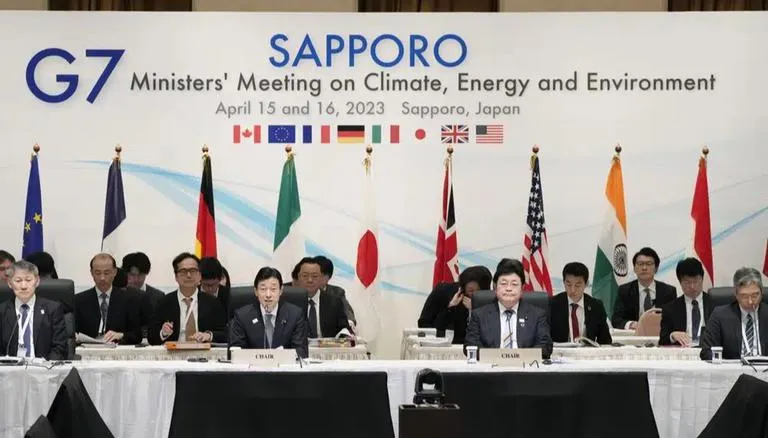
Energy and environment ministers of the Group of Seven wealthy nations met Saturday, seeking to reconcile the realities of a world largely reliant on fossil fuels with the urgent need to end carbon emissions to stave off the worst consequences of climate change.
The meetings in the northern Japanese city of Sapporo are aimed at forging a consensus on the best way forward, ahead of the G-7 summit in Hiroshima in May.
But differences persist over how, and how quickly, to end carbon emissions, especially at a time when the war in Ukraine has deepened concerns over energy security, complicating that effort.
The talks in Sapporo will also focus on biodiversity loss and other global challenges. But climate change tops the agenda of the closed-door meetings. At the G-7 summit last year in Germany, the countries set a common goal of achieving a fully or predominantly decarbonized electricity supply by 2035.
Japan has focused its own national strategy on so-called clean coal, hydrogen and nuclear energy, as part of its transition to renewable energy. U.S. officials voiced support for that approach, while others are pushing for a faster transition to renewable energy.
Among the biggest problems is that while emissions among the G-7 nations, especially in Europe, have begun falling, they are still rising globally, especially in big, increasingly affluent economies like India and China.
The G-7 nations hope to lead by example, U.S. Energy Secretary Jennifer Granholm said in an interview Friday with The Associated Press.
“We expect that those countries see that this can be done and the nations that have the wherewithal to make these investments to first out give hope to others to be able to do it as the technology lowers the cost,” she said.
The U.S. government’s approval of fossil fuel initiatives such as the Willow project on Alaska’s petroleum-rich North Slope have drawn criticism for their environmental impact and for running counter to President Joe Biden’s pledges to cut carbon emissions and move to clean energy.
There’s a strong business case for climate-friendly policies, Granholm said, given the estimated $23 trillion global market in clean energy by 2030.
“People see people getting jobs in this area. People who start to drive electric vehicles and don’t need to pay gasoline prices know that it’s much cheaper to drive EVs. It’s all becoming obvious to people,” she said while touring the Suiso Frontier, the world’s first and only liquid hydrogen carrier, a showcase of the latest technology for what Japan’s leaders call a “hydrogen society.”
















